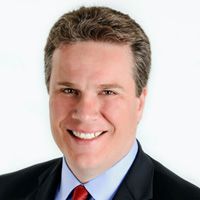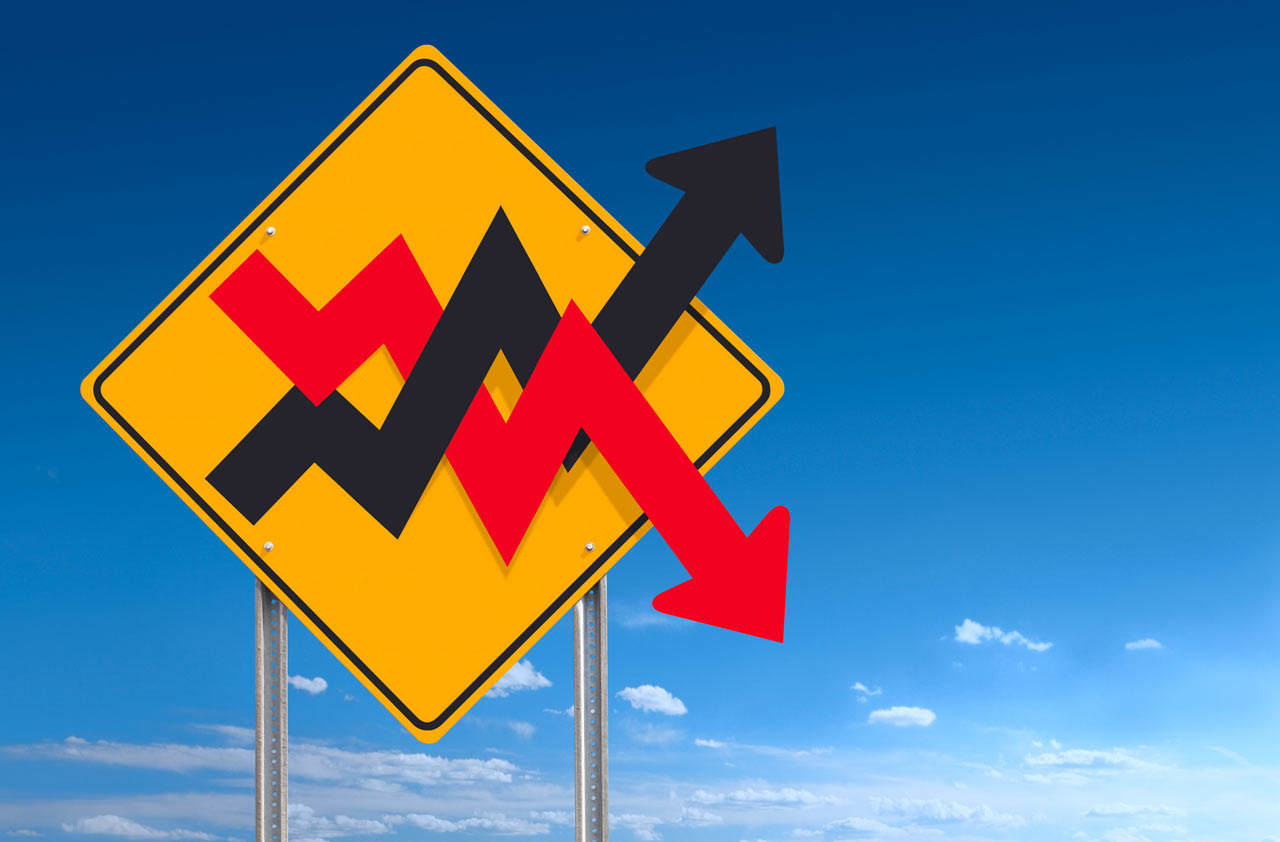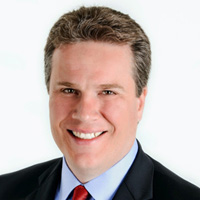Should You Listen to Warren Buffett?
With coronavirus continuing to upend stock markets and the economy, Warren Buffett's advice steering investors toward passive investing through ETFs could be called into question.


Profit and prosper with the best of Kiplinger's advice on investing, taxes, retirement, personal finance and much more. Delivered daily. Enter your email in the box and click Sign Me Up.
You are now subscribed
Your newsletter sign-up was successful
Want to add more newsletters?

Delivered daily
Kiplinger Today
Profit and prosper with the best of Kiplinger's advice on investing, taxes, retirement, personal finance and much more delivered daily. Smart money moves start here.

Sent five days a week
Kiplinger A Step Ahead
Get practical help to make better financial decisions in your everyday life, from spending to savings on top deals.

Delivered daily
Kiplinger Closing Bell
Get today's biggest financial and investing headlines delivered to your inbox every day the U.S. stock market is open.

Sent twice a week
Kiplinger Adviser Intel
Financial pros across the country share best practices and fresh tactics to preserve and grow your wealth.

Delivered weekly
Kiplinger Tax Tips
Trim your federal and state tax bills with practical tax-planning and tax-cutting strategies.

Sent twice a week
Kiplinger Retirement Tips
Your twice-a-week guide to planning and enjoying a financially secure and richly rewarding retirement

Sent bimonthly.
Kiplinger Adviser Angle
Insights for advisers, wealth managers and other financial professionals.

Sent twice a week
Kiplinger Investing Weekly
Your twice-a-week roundup of promising stocks, funds, companies and industries you should consider, ones you should avoid, and why.

Sent weekly for six weeks
Kiplinger Invest for Retirement
Your step-by-step six-part series on how to invest for retirement, from devising a successful strategy to exactly which investments to choose.
Warren Buffett made news in early May by stating that “passive management” should remain an integral part of an investor’s portfolio. For years, Buffett has crafted and stuck to a very specific investing strategy: “Rule No. 1: Never lose money. Rule No. 2: Never forget Rule No. 1.”
While Buffett has been a longtime proponent of passive investing, why has he doubled down on his support of exchange-traded funds (ETFs) in the wake of COVID-19?
Rule No. 1 Is Harder to Achieve Than You Would Think
I would respectfully posit that Mr. Buffett feels that the way he made his vast fortune (picking individual equities) is not something you can do yourself and that most folks in my industry who help you do such a thing for a fee are essentially salespeople, and are not earning their keep. Mr. Buffett stated plainly that the low cost of ETFs will win over professional fee-based management in the long run because professional managers are not that good at stock picking. In some cases, Mr. Buffett’s statement advocating ETFs may be right. But right now, amid a global pandemic, he’s just plain wrong.
From just $107.88 $24.99 for Kiplinger Personal Finance
Become a smarter, better informed investor. Subscribe from just $107.88 $24.99, plus get up to 4 Special Issues

Sign up for Kiplinger’s Free Newsletters
Profit and prosper with the best of expert advice on investing, taxes, retirement, personal finance and more - straight to your e-mail.
Profit and prosper with the best of expert advice - straight to your e-mail.
As a quick refresher, exchange-traded funds are very similar to the traditional mutual fund. ETFs are baskets of securities that trade as a single ticker, which offers easy access to diversification, but usually at a much-reduced cost when compared to investing in mutual funds. What investors may have forgotten, though, is why they cost less to own. They are often built to track the performance of an index, a geographical region, an industry sector, or even a commodity. If you read closely, you’ll find they usually “sample” the underlying index so as to very closely track the performance of whatever they are supposed to be tied to.
The work of finding this special cluster of assets is almost always done with computers and algorithms. The great thing about these instruments is that they have very low cost and massive diversification opportunity that can be accomplished at the speed of light within a portfolio. ETFs are beloved by traders and investment professionals for their high liquidity and ease of access.
Ironically, the greatest strength of ETFs is also its Achilles’ heel: Speed kills. ETFs are purpose-built to mimic some underlying section of the market. But when tectonic shifts in the market occur, ETFs are woefully unprepared to react and get your investments back on track. Right now, the COVID-19 pandemic has paralyzed the global economy. Entire industries have been shaken to their core, and consumers are rightfully unsure of the future.
The Human Element
But why are mutual funds so expensive compared to ETFs? It can mostly be attributed to the human component. With many mutual funds, there are actual investment teams that decide on how money should be allocated and what securities are best to own to accomplish the fund’s goals.
What has gotten confusing is that separately managed advisory accounts are often stuffed with ETFs and mutual funds. In these cases, the investor is paying two levels of fees, one to the advisory firm picking the funds and one to the fund’s various management teams. I’ve looked at many investment portfolios throughout the years that people thought they were spending 1% on, only to find that their estimate did not include underlying fund expenses, which often drive the combined expense ratio well above 3% even at the discount houses.
Nevertheless, even in the face of all of this uncertainty, active management strategies are better positioned than ETFs to regroup, restructure and flourish financially. Active managers can re-evaluate the current state of each industry and divest from those that are expected to underperform -- those same industries that will drag down the returns of a passive ETF.
And while smaller investors truly need ETFs in order to diversify their portfolios with lesser sums, I’ve come to commonly see portfolios of more than $1 million with nothing but ETFs, specifically index driven funds. We all know by now that trillions of dollars of exchange traded funds (ETFs) have been stuffed into investor portfolios.
The old argument states that since most managers don’t beat the indexes anyway, why not remove the risk of underperformance by just passively sampling the index? Vanguard’s Jack Bogle made this idea famous and created fantastic wealth for investors in the process, all in support of Mr. Buffett’s point. I’d offer the new argument that what worked before is not likely to work now, since entire swaths of the economy that are represented in those index weightings are going to be operating under-capacity for a long time to come. Also, on the upside, wouldn’t you want to overemphasize exposure to disruptive players taking advantage of industry carnage instead of just owning an industry segment basket?
Should Big Changes Be Made?
So, is it too late to ask: Did coronavirus infect passive management? How should investors owning these funds expect them to perform now that the ground has shifted in a truly seismic way? Should big changes be made now?
Even Mr. Buffett would likely agree that a succinct investment strategy, with tempered consistent active management, will be worth the cost every single time. My advice is to seek out advisory firms with access to multiple third-party management teams. These teams should be selecting individual investment ideas they feel will outperform the indexes in the new coronavirus world in which we live. If investors stick with passive investing, they risk owning lots of underperforming assets within those baskets, since the entire reality of the world has just been turned on its head.
Effective wealth advisers act as quarterbacks for their clients and allocate capital among capable management teams that purchase individual securities in larger portfolios. The advisers focus on the relationship, service and the allocation of capital among competing management teams. We interact with our clients’ other advisers, tax and legal, and often are involved in the extended family over generations. We understand our clients. We know the businesses they own, the careers they have fostered and the things and people that matter most to them. I’d respectfully state that a true wealth management package like this is well worth the money.
What we do as advisers is incredibly valuable, and I feel strongly that a strategy with multiple lines of active investment management is exactly what the doctor ordered for larger portfolios hoping to survive coronavirus.
Want to learn more about the pros and cons of Active Investment Management? Watch George Terlizzi’s recent 15 minute on-demand webinar Active vs Passive Management for more insight on strategies and investing tactics.
The article and opinions in this publication are for general information only and are not intended to provide specific advice or recommendations for any individual. We suggest that you consult your accountant, tax, or legal advisor with regard to your individual situation.
Securities offered through Kalos Capital, Inc. and Investment Advisory Services offered through Kalos Management, Inc., both at11525 Park Woods Circle, Alpharetta GA 30005, (678) 356-1100. SouthPark Capital is not an affiliate or subsidiary of Kalos Capital,Inc. or Kalos Management, Inc.
Profit and prosper with the best of Kiplinger's advice on investing, taxes, retirement, personal finance and much more. Delivered daily. Enter your email in the box and click Sign Me Up.

George Terlizzi has worked in business for more than 25 years as an entrepreneur, consultant, dealmaker and executive for early and mid-stage companies. He has substantial concentrations in finance, technology, consulting and numerous forms of transaction work. Today George advises wealth clients individually and sets the strategic vision for SouthPark Capital. George's insatiable curiosity, action-oriented approach, and broad-ranging interests are invaluable to those he advises.
-
 How to Watch the 2026 Winter Olympics Without Overpaying
How to Watch the 2026 Winter Olympics Without OverpayingHere’s how to stream the 2026 Winter Olympics live, including low-cost viewing options, Peacock access and ways to catch your favorite athletes and events from anywhere.
-
 Here’s How to Stream the Super Bowl for Less
Here’s How to Stream the Super Bowl for LessWe'll show you the least expensive ways to stream football's biggest event.
-
 The Cost of Leaving Your Money in a Low-Rate Account
The Cost of Leaving Your Money in a Low-Rate AccountWhy parking your cash in low-yield accounts could be costing you, and smarter alternatives that preserve liquidity while boosting returns.
-
 How to Add a Pet Trust to Your Estate Plan: Don't Leave Your Best Friend to Chance
How to Add a Pet Trust to Your Estate Plan: Don't Leave Your Best Friend to ChanceAdding a pet trust to your estate plan can ensure your pets are properly looked after when you're no longer able to care for them. This is how to go about it.
-
 Want to Avoid Leaving Chaos in Your Wake? Don't Leave Behind an Outdated Estate Plan
Want to Avoid Leaving Chaos in Your Wake? Don't Leave Behind an Outdated Estate PlanAn outdated or incomplete estate plan could cause confusion for those handling your affairs at a difficult time. This guide highlights what to update and when.
-
 I'm a Financial Adviser: This Is Why I Became an Advocate for Fee-Only Financial Advice
I'm a Financial Adviser: This Is Why I Became an Advocate for Fee-Only Financial AdviceCan financial advisers who earn commissions on product sales give clients the best advice? For one professional, changing track was the clear choice.
-
 I Met With 100-Plus Advisers to Develop This Road Map for Adopting AI
I Met With 100-Plus Advisers to Develop This Road Map for Adopting AIFor financial advisers eager to embrace AI but unsure where to start, this road map will help you integrate the right tools and safeguards into your work.
-
 The Referral Revolution: How to Grow Your Business With Trust
The Referral Revolution: How to Grow Your Business With TrustYou can attract ideal clients by focusing on value and leveraging your current relationships to create a referral-based practice.
-
 This Is How You Can Land a Job You'll Love
This Is How You Can Land a Job You'll Love"Work How You Are Wired" leads job seekers on a journey of self-discovery that could help them snag the job of their dreams.
-
 65 or Older? Cut Your Tax Bill Before the Clock Runs Out
65 or Older? Cut Your Tax Bill Before the Clock Runs OutThanks to the OBBBA, you may be able to trim your tax bill by as much as $14,000. But you'll need to act soon, as not all of the provisions are permanent.
-
 The Key to a Successful Transition When Selling Your Business: Start the Process Sooner Than You Think You Need To
The Key to a Successful Transition When Selling Your Business: Start the Process Sooner Than You Think You Need ToWay before selling your business, you can align tax strategy, estate planning, family priorities and investment decisions to create flexibility.